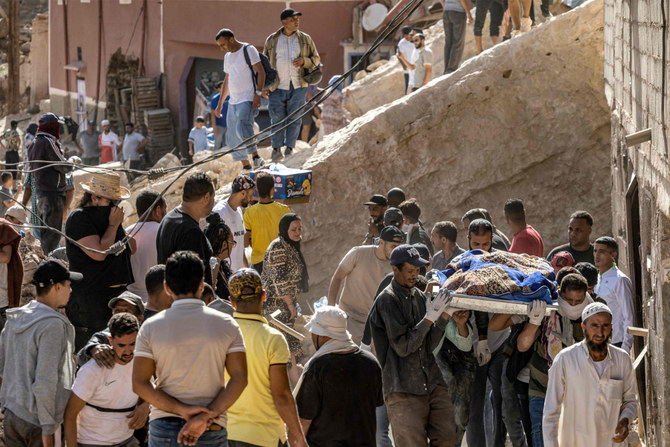Offers of aid and support from foreign governments started pouring in on Sunday for Morocco following the powerful earthquake that struck North African country Friday midnight.
The following are some of those who have responded so far to calls by the Moroccan government:
SPAIN
A Spanish military search and rescue unit with 56 officers and four sniffer dogs arrived in Morocco on Sunday, Spain’s Defense Minister Margarita Robles said. The unit from the Spanish Emergency Military Unit will work about 100 km (60 miles) south of Marrakech. A second team of 30 people and 4 dogs was heading to Morocco.
Foreign Minister Jose Manuel Albares said earlier that Spain had received a formal request for help from Morocco, in a call from his Moroccan counterpart.
UNITED STATES
The United States dispatched a small team of disaster experts to Morocco to assess the situation, identify unmet humanitarian needs and work with the government of Morocco to identify additional support. A US official said the team arrived on the ground on Sunday.
BRITAIN
Britain said it was deploying 60 search and rescue specialists and 4 dogs on Sunday, as well as a four person medical assessment team.
FRANCE
France said on Sunday it is ready to help Morocco and is awaiting a formal request for assistance.
“Moroccan authorities know exactly what can be delivered, the nature (of what can be delivered) and the timing ... We are at their disposal. We did everything we could do ... The second they request this aid, it will be deployed,” President Emmanuel Macron said during a news conference at the G20 Summit in New Delhi.
Separately, the Foreign Ministry said it was activating a fund of local government contributions to support solidarity actions. At this stage nearly 2 million euros ($2.14 million)have been pledged, it said. Additionally, many French companies have contacted the ministry to say they intend to contribute to France’s support efforts.
Telecoms group Orange said on Saturday that it would lift charges for its mobile clients for fixed and mobile calls as well as SMS to Morocco, until Sept. 16. Its units in Belgium, Poland, Romania and Slovakia have also announced free communications to Morocco for a week.
ISRAEL
Israel’s Magen David Adom national medical and disaster emergency service said on Saturday that its head contacted the president of Moroccan Red Crescent with an offer of help.
“Representatives from Magen David Adom are gearing up to depart within the next few hours,” it said in a statement. “They will be joining hands with delegations from the Ministry of Health and the Israel Defense Forces.”
ALGERIA
Algeria, which broke off ties with Morocco two years ago, said it would open its air space for humanitarian and medical flights to Morocco. In a statement on Saturday, Algeria’s presidency said it was ready to provide humanitarian aid and offer all its material and human capabilities in solidarity with the Moroccan people, if Morocco requests such help.
On Sunday, the Foreign Ministry said Algiers has prepared emergency and medical teams along with humanitarian aid, to be dispatched to Morocco if Rabat approved.
TUNISIA
Tunisia has assembled a team, which is waiting to depart pending authorization from Morocco, to support search and rescue efforts, a spokesperson for the country’s civil protection agency said on Sunday. Interior Ministry officials said earlier that the team had already arrived in Morocco. The team includes about 50 paramedics and personnel from a specialized unit, and search dogs, as well as advanced thermal monitoring devices, a drone to detect victims under the rubble and a field hospital.
TURKEY
Turkiye’s AFAD disaster management authority said on Saturday that 265 aid workers from AFAD, the Turkish Red Crescent and other Turkish NGOs were ready to travel to the quake region if Morocco calls for international assistance. It also said that Turkiye was ready to deliver 1,000 tents to the affected areas. By Sunday the team had not yet departed.
KUWAIT
Kuwait’s Emir Nawaf Al-Ahmad Al-Jaber Al-Sabah directed the government to provide all necessary relief supplies for Morocco, the state news agency (KUNA) said on Saturday.
OMAN
Sultan Haitham bin Tariq Al-Said of Oman ordered rescue teams and urgent relief and medical aid to be sent to Morocco, the Omani state news agency said on Sunday.
TAIWAN
Taiwan’s fire department said on Saturday it had put a team of 120 rescuers on standby to go to Morocco the moment they get instructions from Taiwan’s foreign ministry.
































